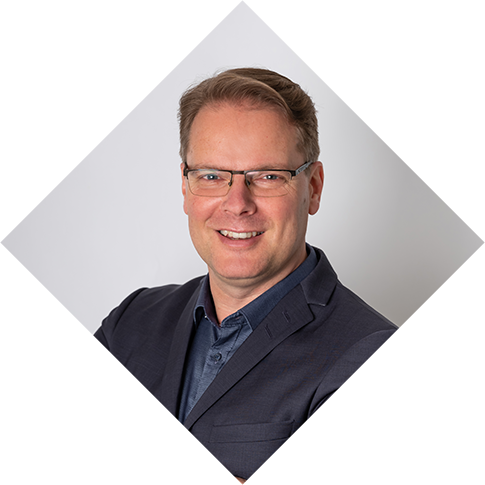Category: Innovative Technologies
Falckers drone-based automated inspection services hit the sweet spot between industrial customers and leading tech suppliers
As Thomas Schouten, founder and CEO of Falcker has noticed, industrial customers in greater Rotterdam – The Hague have a healthy appetite for innovative solutions that optimize their operations in terms of costs, quality and safety. Eager to explore the great potential of Falckers automated drone-based inspection solutions, they happily invest in the co-creation of custom solutions to ideally fit their specific needs.
It sets Falcker up for commercial success, not only because of the magnitude of opportunities within these internationally operating customers. More significantly, the evidence and track record created with these world-renowned companies make it so much easier to expand their services to similar companies around the globe, and other industries with similar needs.

Commercialization
Falcker was born out of an exploration of the commercial potential of downstream space technology, called remote sensing. Conversations between Thomas and a friend who worked for ESA led to a pilot (as a hobby project at first) within the agriculture industry. For this concept, drones were applied for crop inspection based on remote sensing. This satellite-based sensing technology was developed for monitoring elements such as air pollution, sea levels, and weather conditions. The question was if the data could be used commercially to complement its primary, public purpose. However, the traction within the agriculture community didn’t take off and Thomas’ enthusiasm for the project was decreasing.
“At that moment, I had enjoyed a lengthy career in commercial positions at service providers on industrial sites at the port of Rotterdam,” says Thomas.
“At a certain point I had an informal chat with a customer about this hobby, which brought us to the idea of testing its viability for inspection of storage tanks in the petrochemical industry. Eventually this led to a contract with Maasvlakte Olie Terminal (MOT), a joint venture with Vopak, Shell, Saudi Aramco, BP, Exxon, and Zeeland Refinery. It’s amazing to see how that spontaneous idea has led to where the company is today; with several large customers, 15 employees and at the brink of scaling up.”

The supportive attitude of the team at Port of Rotterdam helps with scaling up internationally. It is open to connecting Falcker to its international network, for example with the port of Singapore, where conditions are similar and Falckers services can be deployed without too many adjustments.
Tapping into start-of-the-art technology providers
On the supply side, Falcker can rely on a leading tech ecosystem holding scarce expertise and contributing state of the art technology. At the root of the ecosystem is TU Delft’s faculty of Aerospace Engineering, which is the largest and highest-ranked in Europe. With leading expertise on flight performance and propulsion systems, air & transport operations, aerodynamics and control & simulation for Falcker to tap into, the company is able to offer its customers fit-for-purpose solutions.

“In essence, Falcker is a software company,” explains Thomas. “Our service is image processing, using Artificial Intelligence to inspect large structures for anomalies and potential failure. In order to get close enough to the surface of these structures, we use drones. In other words, the drones are not our core business. The local ecosystem in greater Rotterdam – The Hague provides the drone-expertise we need to collect the data for our services. Quite ironically, after exploring available options on the international arena, we ended up concluding that the very best companies to partner with were around the corner.”
From the service provider accounting for advice and purchasing of the drones, to permits, inspections and testing of the drones, to aviation experts managing legislative issues, to asset management experts and operators, Falcker finds its partners in greater Rotterdam – The Hague.
“An example of a local company that we recently started working with is Noordwijk-based Mapture, whose drone in a box solution enables automated flights. This enables us to scale our solution, increase inspection intervals and significantly reduce required man-hours.”
And the ecosystem provides plenty of opportunities for co-creation on the product development side as well.
“For example, we are currently collaborating with TWTG, a company from Zuid-Holland, which is specialised in sensor technology to monitor structural health on industrial structures on a continuous basis. By integrating the data from our solutions into one platform, we can potentially develop a full-service solution for predictive maintenance for the chemicals industry. The benefits of this integration for the customer are legion and it significantly increases the range of application for both companies.” Says Thomas
Regulatory challenges
“What we have discovered as we were building our business, is that technology-wise, just about anything is possible. What limits our growth is regulation and legislation. The Dutch are very cautious and has safety and security at an extremely high level of priority. This has advantages in some respects, but for emerging technology such as drones, it is sometimes a pressing limitation. On the upside, I must say that things seem to start moving a bit quicker and new legislation offers more possibilities. Plus, in the longer run this cautiousness will benefit our reputation as a Dutch company, especially in conservative industries such as the oil & gas and chemicals.”
Interested in joining the Drone ecosystem in greater Rotterdam – The Hague?
Please don’t hesitate to get in touch!




